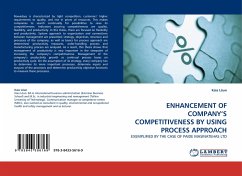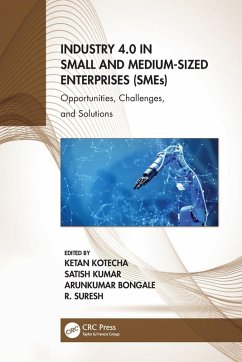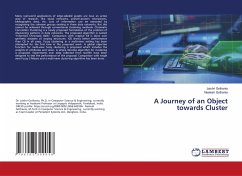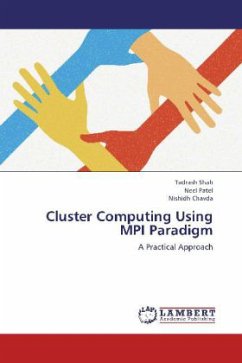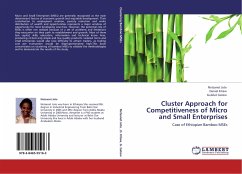
Cluster Approach for Competitiveness of Micro and Small Enterprises
Case of Ethiopian Bamboo MSEs
Versandkostenfrei!
Versandfertig in 6-10 Tagen
39,99 €
inkl. MwSt.

PAYBACK Punkte
20 °P sammeln!
Micro and Small Enterprises (MSEs) are generally recognized as the main determinant factors of economic growth and equitable development. Their contribution to employment creation, poverty reduction and wider distribution of wealth and opportunities represents a major window of opportunity for most developing countries. However, the potential role of MSEs is often not realized because of a set of problems and limitations they encounter on their path to establishment and growth. Most of them lack capital, skills, education, information and technical know how, producing at best only simple and l...
Micro and Small Enterprises (MSEs) are generally recognized as the main determinant factors of economic growth and equitable development. Their contribution to employment creation, poverty reduction and wider distribution of wealth and opportunities represents a major window of opportunity for most developing countries. However, the potential role of MSEs is often not realized because of a set of problems and limitations they encounter on their path to establishment and growth. Most of them lack capital, skills, education, information and technical know how, producing at best only simple and low quality products. Isolated micro and small enterprises would also face difficulty to attract traders, as trading cost per transaction would be disproportionately high.This book concentrates on clustering of bamboo MSEs to validate the methodologies and to demonstrate the results of the study.




